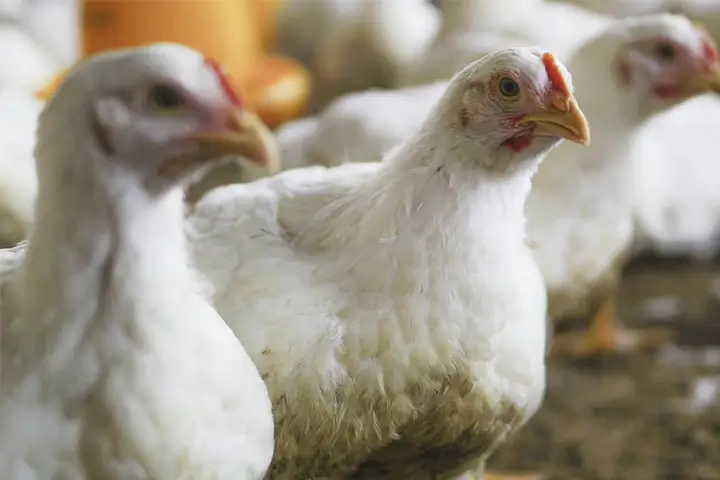
South Africa’s poultry industry is facing a daunting challenge as punitive trade tariffs on imported chicken make a comeback after a year-long hiatus. These long-dreaded anti-competitive duties were initially suspended in July of the previous year due to concerns about their impact on soaring food prices. However, they have now been reimplemented, dealing a blow to local pockets at a time when many South Africans are already grappling with severe financial stress.
The result of this tariff revival is an anti-dumping duty of up to 265% on chicken imports from Brazil, in addition to the existing 62% tariff that is responsible for more than half of the country’s imported frozen chicken. Several other important poultry trading partners are also affected, with new additional tariffs of up to 158.4% on imports from Ireland, 96.9% on Poland, 85.8% on Spain, and 67.4% on Denmark.
According to the South African Poultry Association’s general manager, Izaak Breitenbach, the landed cost of imported chicken from Brazil is around R9 per kilogram, while the local producer price is approximately R30.50 per kilogram, making imports more than three times cheaper. However, this calculation fails to take into account mechanically deboned meat (MDM), chicken, and offal, which should not be factored in due to significant differences in processing and costs. Including MDM in the calculation unfairly distorts the comparison.
Furthermore, imported chicken leg quarters, a highly popular cut in South Africa, are already arriving at a cost of over R35 per kilogram, inclusive of duties. In contrast, locally-produced individual quick frozen (IQF) chicken is being sold to local wholesalers at around R25 per kilogram, giving local producers a competitive advantage against international counterparts.
While it is understandable that local poultry producers are concerned about the impact of dumping practices on their ability to compete in the domestic market, the situation is far more complex. Unfortunately, in the current circumstances, the reintroduction of these duties is likely to cause more harm than good.
Reciprocal trade benefits all participants in the market, including producers, sellers, consumers, and even the government, which gains from increased tax revenue due to improved supply. Imposing exorbitant duties on import partners while expecting low or no duties on exports is not a sustainable approach for South Africa’s trade relations.
In conclusion, the reimplementation of astronomical chicken import tariffs poses significant challenges to South Africa’s poultry industry. While the intention to protect local producers is understandable, the current approach may have unintended consequences and hinder the industry’s ability to thrive in a global market. A more balanced and strategic trade policy is needed to support the growth of the poultry sector while ensuring fair and competitive trade practices.
Stay updated with the latest farming tips and agriculture industry news from Africa by subscribing to our newsletter. Don’t miss out on valuable insights and updates. Follow us on Twitter, LinkedIn, and Facebook to join our farming community and stay connected with us.



















